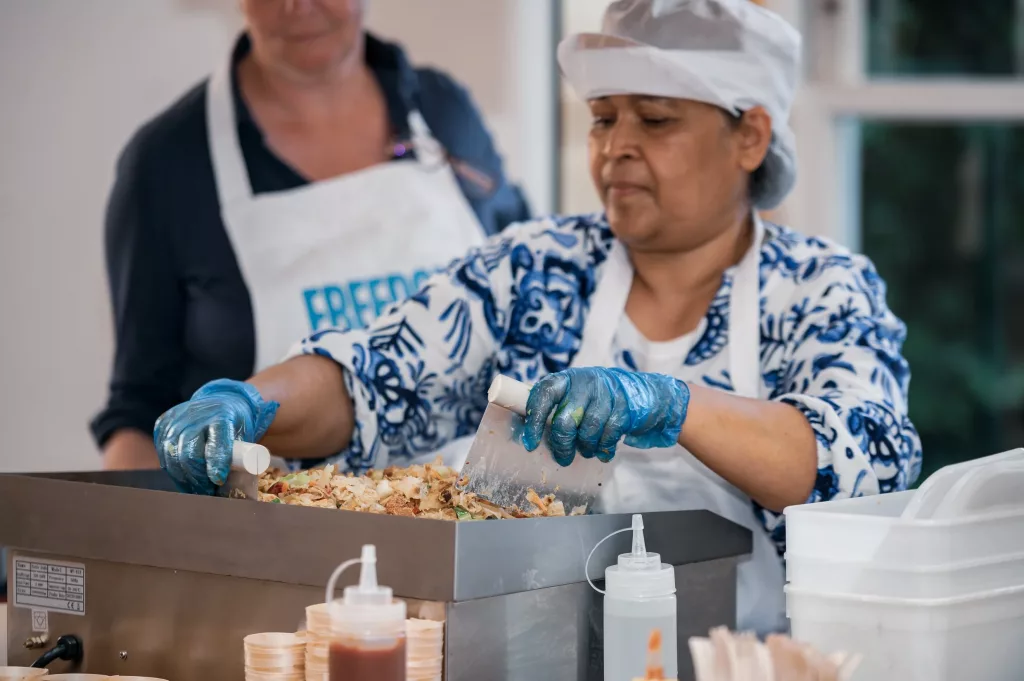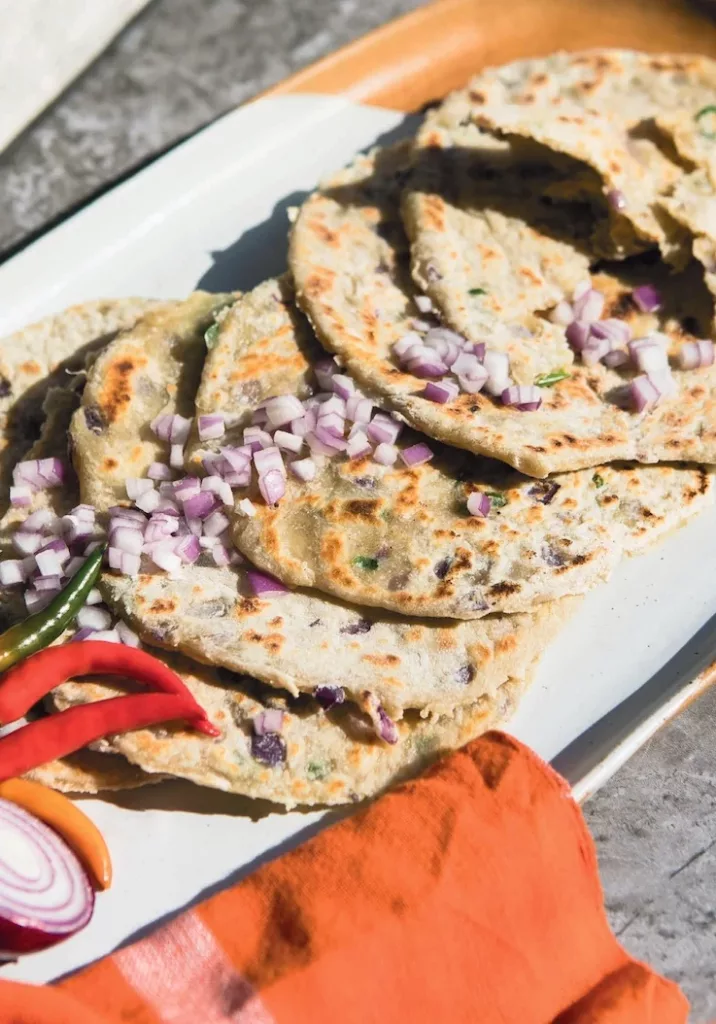Sharing food with others is a powerful symbol of love, care and connection. Food is perhaps the most powerful way to nurture relationships and to share cultures or traditions. Food says we are neighbours, friends, or chosen family. We are still alive, and we can feel joy. Food is healing. Food is home. That’s why making and sharing food is one of the most powerful acts of compassion.
Every Refugee Week people come together over food, share recipes, teach each other dishes and of course, sit down to share meals.
Some ideas to get you started!
- Host a meal sharing dishes from different cultures, at home or as part of a Refugee Week event.
- Share or swap favourite recipes from home, and have a go at making a new dish!
- Hold or join a cooking class to learn a dish and hear stories from other parts of the world.
- Make a new recipe for a cookbook (here are some of our current favourites: SkatePal, The Iraqi Cookbook, Sami Tamimi, Olia Hercules, My Recipe My Story, Stories and Supper)
The Great Street Feast
| The Great Street Feast is back on 22 June! Run by Freedom From Torture, this incredible event celebrates cultures from around the world through an evening of gourmet street food and entertainment.
At the heart of the event is the healing power of food and cooking. Featuring a line-up of chefs BAFTA’s Head Chef Anton Manganaro, Chaya Maya of Ottolenghi, Philip Juma of JUMA Kitchen, Cesar Garcia of Ibérica, and Cynthia Shanmugalingam of Rambutan in Borough Market. Ambassador and Michelin star chef, Paul Merrett says, “I’ve been helping to run the Great Street Feast for many years now and it’s been wonderful watching it grow. I’m particularly excited to be cooking alongside Yogi at this year’s event, who has come so far since fleeing his homeland and developed into a formidable chef. This event really captures what I love the most about cooking; people coming together to share food, tell stories and build communities.” He’ll joined by chef Yogi, who after fleeing torture and persecution came to the UK, trained as a chef after receiving support from the charity, and is now a chef de partie at one of London’s top hotels, “When I came here as a refugee, I didn’t even know how to make a cup of tea! Always my mum and wife, they are the ones who did the cooking, but now I am cooking. Now I’m a chef, I’m very proud. Freedom from Torture helped with everything. The main reason I am here now today is because of them. Today I am happy. When I sit down and eat a meal with my family, I feel free. I enjoy every second. I love every day.” |
This week, we’ve partnered up with Freedom From Torture, who are sharing a recipe from Sri Lanka: Recipes From Home, a recipe book that draws on torture survivors’ memories of home cooking.
Recipe: Onion Roti
Ingredients
- 1kg of plain flour
- 2 large onions
- 7-10 green chillies
- 2 tablespoons of oil (you can use coconut, sunflower or vegetable oil)
- 200g of grated coconut
- Water (a little at a time as needed to form a dough)
- Salt to taste
Method
- Finely chopped the onions and the green chillies.
- In a bowl sift the flour and add the chopped onions, the green chillies and salt and mix well.
- Add the oil and grated coconut to the flour mix. Then add water a little at a time until it forms a dough, but not a sticky dough.
- Make the dough into balls, each weighing around 50g.
- Keep them separately.
- Roll the dough flat in a round shape, 4-inch diameter.
- Heat a heavy-duty skillet or a cast iron skillet. On a medium to high heat cook on both sides until it is browned.
Food events happening during Refugee Week!
|
|
|
|
Find more food events here!









